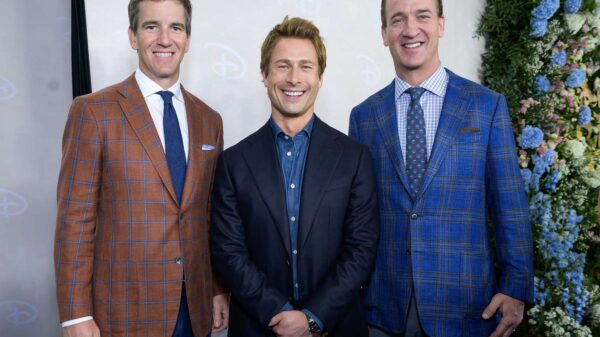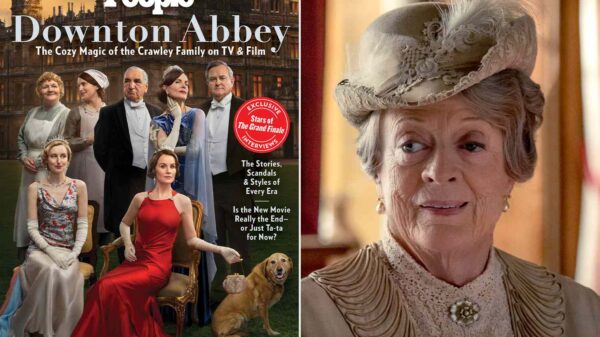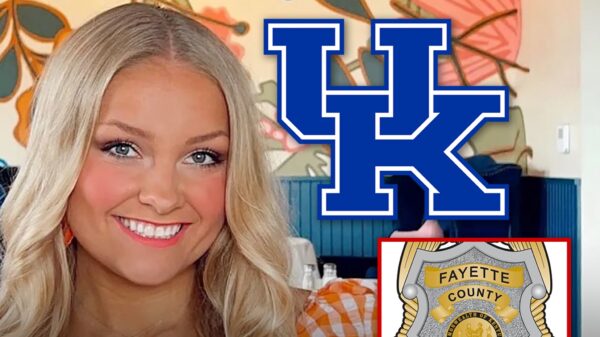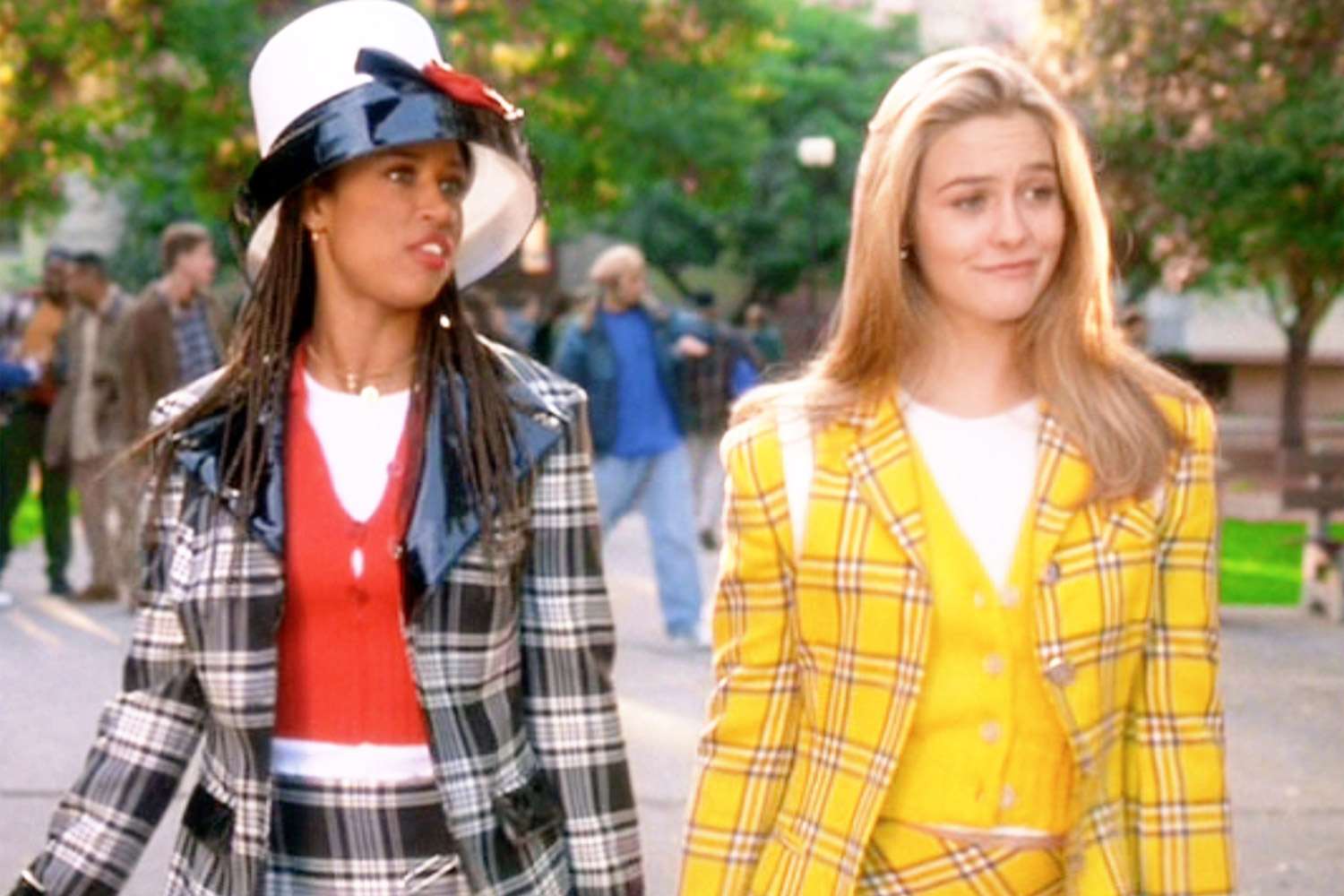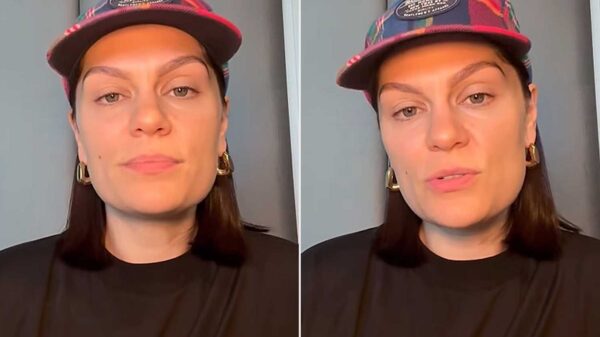With a modesty of scale but not of genius, Jane Austen described her writing as something both diminutive and intricately wrought, comparing it to a fine brush applied on a “little bit (not two inches wide) of ivory.”
Small is better, wouldn’t you say? In a year dedicated to celebrating her 250th birthday — she was born Dec. 16, 1775 — Austen is acknowledged as one of the greatest novelists in the English language, the author of a half-dozen or so classics, including Pride and Prejudice, Sense and Sensibility, Emma, Persuasion and Mansfield Park.
Her novels are timeless, and in many ways unrivaled. Written in a fresh, economical style, they’re informed by her pointed wit and acute moral and psychological perception. But each work is distinguished in tone just enough that, for years now, readers have entertained themselves by asking the question: What Jane Austen book are you?
You could just as well ask that same question about Austen adaptations for movies and TV. Her novels have been adapted dozens of times, starting with a rather stiffly costumed Hollywood production of Pride and Prejudice in 1940. Her humor, period detail, and elegantly shaped, romance-driven plots have proven to dovetail nicely with the conventions of our contemporary rom-com, often served up with a dollop of Merchant-Ivory good taste. But her broader concerns — class, money, morality, the status of women, family, the education of heart and mind — can be detected flowing through the narrative current of any good adaptation, no matter how far it departs from the original novel.
And that can be quite a distance. Sense and Sensibility’s adaptations (eight and counting) include Kandukondain Kandukondain, an Indian musical, and something with the punning title Scents and Sensibility (2011). Pride and Prejudice was given a contemporary spin in The Lizzie Bennet Diaries, a YouTube series. And then there’s the modern Hollywood classic, Clueless, which turned 30 on July 19. Clueless happens to be based on Emma, although you won’t see that fact noted in the credits.
Serious Austen devotees might point out that no movie or TV series can capture the austere intelligence of Austen’s prose, in which the words are laid out as neatly as brickwork in a garden path and given a light glaze of ironic observation. Consider this sentence from Mansfield Park: “It was a gloomy prospect, and all that she could do was to throw a mist over it, and hope when the mist cleared away, she should see something else.” But, to borrow a phrase that none of the Bennet sisters ever uttered in Pride and Prejudice, “No biggie.”
Austen herself said that being able to laugh at society — at herself, at other people — was at the heart of all her writing. Otherwise, as she put it, “I am sure I should be hung before I had finished the first chapter.”
Here, Reader, is a run-through of Austen movies and limited TV series, from my favorite through least favorite — though Austen’s novels are surprisingly sturdy, if approached with fondness and respect, and only the last of these would be considered unrewarding. They’re all available for streaming.
1. Clueless (1995) You can certainly argue that this version is just about the least faithful of any Austen film. Writer-director Amy Heckerling moves the story to modern Beverly Hills and transforms Austen’s Emma — bright, privileged but curiously obtuse — into Cher Horowitz (Alicia Silverstone), a privileged, curious yet curiously clueless high-school student who can say of a cute boy, in the lingua franca of 1995: “Okay, so he’s kind of a Baldwin.”
Even if Clueless reimagines Cher as the teen queen bee of a culturally diverse society — she loses her heart to Christian (Justin Walker), a gay boy who loves to shop — it never sacrifices Austen’s affectionate comic regard for her fallible heroine. And Heckerling, who perhaps regards Silverstone with a similar regard, creates clever parallels to the original story. In the novel, Harriet Smith, Emma’s socially inferior friend, is frightened and harassed by a band of beggar children. In Clueless, Harriet has become a tacky high-school newcomer, Tai (Brittany Murphy), frightened by the rough-housing boys at the mall.
In the novel, after Emma and Harriet have become awkwardly estranged over Mr. Knightley, Emma receives a letter from her in which “she fancied there was something of a resentment.” The movie makes this resentment more explicit with Tai’s memorable diss to Cher: “You’re a virgin who can’t drive.” Cher, wounded to the quick, can only muster a sad, delicate response: “That was way harsh, Tai.”
The glowingly beautiful Silverstone, whose performance has a kittenish vulnerability, delivers this line with exactly the right note of self-realization and mortification (the same can be said of her reaction a few seconds later: “I could feel the chunks start to rise up in my throat”). Her Cher is the heroine Austen imagined in 1815, only 180 years later. Emma deserves perfection. And Silverstone is perfect.
2. Pride and Prejudice (2005). Matthew Macfadyen’s saturnine Mr. Darcy is like some lanky, unexpectedly sexy barista who brings the aroma of espresso into the tea salon. He’s always striding in and out of the mist or the rain, tormented and damp, with a look that works wonderfully in the countryside. (At the grocery store, he’d seem more of a menace.) It’s a terrifically romantic performance, treasured especially for the way Darcy’s flexing fingers betray his passion for Keira Knightley’s Elizabeth Bennet, and it’s a bit of a shock if you associate Macfadyen chiefly with awful Tom on Succession.
The very last scene — a rather sugary coda with Darcy and Elizabeth — was cut from the British release, which ends instead with Mr. Bennet (Donald Sutherland) making a satisfied comment about his other daughters’ prospects: “If any young men come for Mary or Kitty, for heaven’s sake, send them on in.”
For American audiences, the coda was restored, with an enchanted Darcy saying “Mrs. Darcy” over and over. Frankly, I’d rather have known if the couple had developed any “safe” words. But the movie is satisfying on just about every level. It has an attractive, lived-in look, and the lighting is lovely.
But I don’t want to overlook the British limited series (1995) that made a sex symbol of Colin Firth as Darcy. The whole mania for Austen adaptations probably started here. At the time, I wasn’t crazy about Jennifer Ehle’s Elizabeth. How could I have been so clueless? Rewatching her now, I’d say she’s the very best Elizabeth — poised, dignified, and rocking those Empire gowns. Also, Netflix is developing a Pride and Prejudice series with a promising cast that includes Emma Corrin as Elizabeth and Jack Lowden as Darcy. Perhaps it will be a more polite cousin to Bridgerton.
3. Sense and Sensibility (1995). Emma Thompson, who’d go on to do some helpful tweaking of the script for Pride and Prejudice, won a deserved Oscar for her adaptation of Austen’s 1811 novel about two sisters, Elinor and Marianne Dashwood, the one solidly pragmatic and the other wildly romantic.
Accepting the award, Thompson (who plays Elinor) joked that she’d recently visited Austen’s grave “to pay my respects and tell her about the grosses.” This very fine, exceptionally handsome film, directed by Ang Lee (Brokeback Mountain), has a passionately anguished performance by Kate Winslet as Marianne, who suffers an emotional collapse after giving her heart to a rounder named Willoughby. Almost too passionately anguished, Austen is a sonnet played on the fortepiano, while Winslet is Liszt banged out on a Steinway.
But Thompson, brisk and wry yet hinting at depths of her own, is the most important performer here— she’s the Austen stand-in. Alan Rickman, with his deep, mellow, softly puffing voice, is immensely sympathetic as that most patient of suitors, Colonel Brandon. Austen herself might have spent a few hours pining for him. What might she have made of Truly, Madly, Deeply?
Director Lee, by the way, once said that his masterpiece Crouching Tiger, Hidden Dragon (2000) was intended to be “Sense and Sensibility with martial arts.” But he was probably joking.
4. Love & Friendship (2016). Written and directed by Whit Stillman, the sparkling, jewel-hard Love is based on an epistolary novel Austen wrote before she was 20 (it wasn’t published until 1871 — she had died in 1817 at age 41). If it’s not a significant work in the Austen canon, it has the distinction of being a highly unusual one. This is the story of the deliciously immoral Lady Susan Vernon — Dickens might have described her as a “right regular bad ‘un” if she’d shown up in one of his voluminous Victorian novels. Lady Susan (Kate Beckinsale) maneuvers, flatters, deceives and seduces her way through bustling London and across the green lawns of her relatives’ country estates. And yet she comes out of it all quite happily — not necessarily any more happily than the story’s virtuous characters, including a daughter, Frederica (Morfydd Clark), for whom Lady Vernon displays absolutely no maternal love. (“When the little ones are very small,” she says, “there’s a kind of sweetness which partially compensates for the dreadfulness which comes after.”) But she’s certainly not punished, as were so many wicked women in old novels. The film ends with Lady Susan setting herself up in a kind of throuple, although one member of the ménage is too stupid to be so informed.
Love & Friendship isn’t cynical — that would take the tone too far from Austen — but it’s slyer and sharper than most adaptations. Lady Susan would agree with the opening line of Pride and Prejudice, the often quoted observation that “a single man in possession of a good fortune, must be in want of a wife.” She’d probably agree, but with the proviso that this universal truth can require low, deliberate cunning on the part of a woman determined to be that wife. Lady Susan is that rare thing in Austen, a survivor.
5. Persuasion (1995). Austen’s final completed novel, published posthumously, has an air of mournful regret. The heroine, Anne Elliot, has been languishing — and kicking herself — ever since a family friend prevailed upon her to reject a proposal from the man she genuinely loved. She “had been a very pretty girl,” Austen writes, “but her bloom had vanished early” — she’s 27! Meanwhile, her father, unable to economize, is forced to rent out their home and relocate the family to Bath (a town that Austen described as “all vapour, shadow, smoke & confusion”). When Anne takes a trip to the coastal town of Lyme Regis, the narrative swerves toward genuine somberness. Then, a potentially tragic accident occurs along the stone walk of Lyme Regis, a coastal town on the English Channel. (The poet Alfred, Lord Tennyson was so struck by Austen’s description of the accident that he walked nine miles to examine the spot.)
This deeply felt film, directed by Roger Mitchell, has a lovely performance by Amanda Root as Anne, unsure of her world but not necessarily intimidated. Anne is full of suffering, but suffering fortifies her. She finally gets her proposal, but it’s a hard-earned one.
There’s also a 2022 Netflix Persuasion starring Dakota Johnson, although it feels less properly Austenian than her latest movie, Materialists.
6. Emma (2020). Anya Taylor-Joy, imperiously slender and with devouring eyes, has a porcelain haughtiness that doesn’t quite work as Emma Woodhouse — at least not for me. You can understand why an actress would play her that way, or be directed to. Emma’s presumptuousness, her insularity, and her misdirected instinct for matchmaking easily translate into arrogance. But she’s also young and inexperienced, which means that she’s not as sophisticated as her station might demand, and she nearly always means well — except for her startlingly blunt putdown of poor, dull Miss Bates (Miranda Hart). A softness — like Alicia Silverstone’s in Clueless or the young Kate Beckinsale in 1996’s TV Emma — and maybe even a degree of silliness should shape her. (Gwyneth Paltrow gave her an attractive, swan-like gracefulness in the 1996 film.) She’s possibly one of the most nuanced, fully inhabited characters in English literature, and delightfully alive on every page — not, as happens here, just near the end, when she finally understands both her pride and her true feelings for Mr. Knightley (Johnny Flynn). This film has a pretty, pastel flounciness, which can’t be objected to, but the only surprise is Emma’s nosebleed.
7. Fire Island (2022). Writer-star Joel Kim Booster came up with this enjoyable, unblushingly libidinous take on Pride and Prejudice. Everyone is shirtless, for one thing. The maritally challenged Bennet sisters are transformed into a household of romantically frustrated queer men spending a week on Fire Island. What’s lacking is Austen’s precise rhythmic thrust — I’m referring to prose, not sexual technique — and her ability to suggest that snobbery is a fine, tightly constricting mesh.
In Fire Island (and, in my own sadly limited experience, on Fire Island itself), making the gay A-list isn’t really about class. It’s about physique, personality, and pheromones. (Who would say no to Joel Kim Booster?) Then again, maybe you shouldn’t expect Austen’s rigorousness when you’re summering on Fire Island. This is a nice gay romcom, regardless.
8. Mansfield Park (1999). Published in 1814, Park is often regarded as Austen’s supreme achievement as a novelist, with good reason. Her handling of narrative gains a new depth and expansiveness, and her amusement at her characters’ foibles has a larger, if discreetly measured, degree of sternness, even displeasure.
Many readers, though, have a hard time swallowing her heroine, Fanny Price. Again, with good reason. A poor relation brought to live on the grand estate owned by her uncle, Sir Thomas Bertram, Fanny is what we’d now call socially phobic — timorous, anxious, overwhelmed. (“She sat some time in a good deal of agitation, listening, trembling, and fearing to be sent for every moment.”) This film disposes of that problem by giving us a Fanny, played by Frances O’Connor, with the ready spirit and backbone of so many other Austen heroines. The result, though, is like a generic extension of the Austen “brand.”
The film gets points for trying to address the book’s thorny underlying issues about racism and slavery (the family fortune depends on a plantation in Antigua), but even the male eye candy (Jonny Lee Miller, James Purefoy, Alessandro Nivola) disappoints. If Austen had ever conceived one of her novels as a Regency Bachelorette, with the suitors driving up a raked-gravel path in barouches, the unmarried heroine would have ordered them all to turn around and go home.
You can find allusions to Mansfield Park in Metropolitan, a 1990 film from Love & Friendship director Stillman. It’s a brittle little comedy, influenced by Austen, about affluent, drolly articulate young New Yorkers — you’ve never seen so many thin lips, pursed in disdain — and their less-than-vibrant social and romantic engagements. In one early scene, a couple discusses Mansfield Park’s problematic reputation. “You found Fanny Prince unlikable?” she asked, to which he replied, “She sounds pretty unbearable. But I haven’t read the book.”
Still, Stillman may be the ideal Austen director, the one most in sync with her sensibility and her self-discipline. “I must keep to my own style,” the author once wrote, “and go on in my own way.”
Read the full article here


